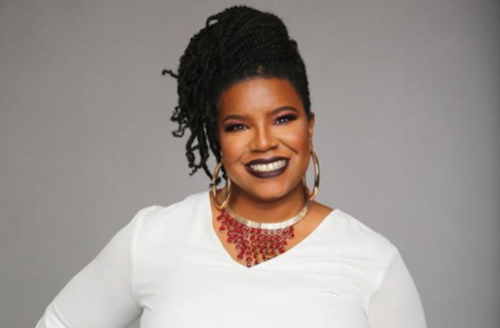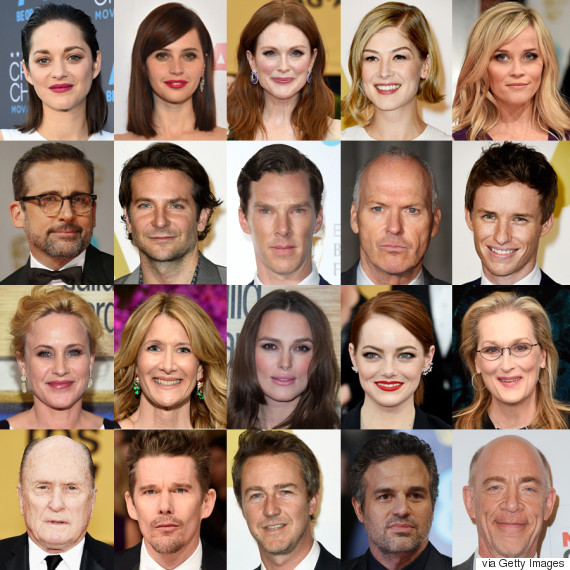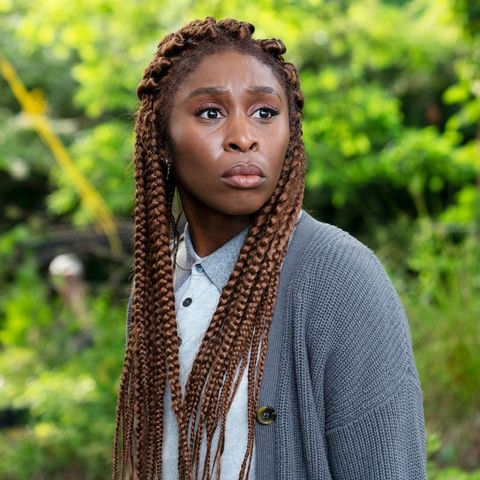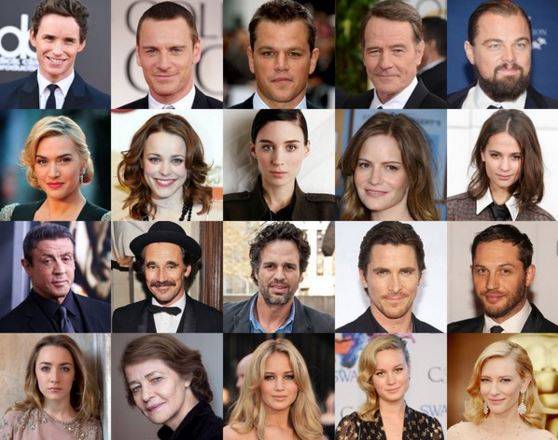
Within hours, the tweet - sent from Washington, as Reign followed the Oscar nominations announcement over breakfast, and realised all 20 actors were white - had gone viral worldwide. Five years later, the phrase has become a universal clarion call for more diversity at the Oscars, in Hollywood and the entertainment industry in general.
But the hashtag made an unwelcome return to Twitter this month as the 2020 Oscar shortlists were announced by the Academy of Motion Picture Arts and Sciences.
 PHOTO: FILE
PHOTO: FILECynthia Erivo was the only actress of colour to earn a nomination, for anti-slavery biopic Harriet. All of the male acting nominees were white. Industry website Deadline Hollywood called the announcement "basically #OscarsSoWhite Part 2."
For Reign, a former Washington campaign finance lawyer who quit her job in the US capital and now works on inclusion and representation issues full-time, it was no great surprise.
"We are now in year six and every single year, #OscarsSoWhite is mentioned again," she said. “I would love to see an end point but the end comes when we no longer have to talk about issues of inclusion and representation."
 PHOTO: FILE
PHOTO: FILE'Truth to power'
Underlying Reign's viral message about the Oscars is a much more expansive campaign to force Hollywood to boost diversity, broaden its horizons and stop relying on old habits and closed-shop networks.
Reign says this is something studios have shown themselves incapable, or unwilling, to do.
"Outside activists or advocates are incredibly important to say, you know, we're out here, we want to be represented," she explained. "I think that there is something interesting about speaking truth to power from the outside."
 PHOTO: FILE
PHOTO: FILEShe points out that campaigners such as singer Harry Belafonte and actress Rita Moreno have been banging the diversity drum in entertainment for decades. But the "significant and undeniable power of social media" - particularly its high levels of engagement - make the message harder to ignore these days. Beside the sheer weight of numbers a viral campaign can attract, activists believe they can succeed by exposing the dirty secrets of the industry and its gatekeepers.
For Reign, spreading awareness about the Oscar-voting Academy is key. Membership is 84% white, 68% male, and voters are not required to watch every nominated film. "Why do regular audience members - who are much more diverse - care what older white men think is the best movie of the year?" she said, noting the Oscars' falling viewership.
 PHOTO: FILE
PHOTO: FILEProgress so far is slow but evident. Since 2015, the Academy has made concerted efforts to broaden its membership. The annual intake of new members reached 50% female for the first time in 2019, while non-white membership has doubled in five years.
#BAFTASoWhite: British awards show slammed for all-white nominees
But less than one-third admitted were people of colour. "The curtain has been pulled back, right? And we see what the Wizard of Oz looks like," said Reign.
'Shame and reputation'
It is a method that has been emulated by other campaigners. New York-based activist Tarana Burke began using the expression "Me Too" to confront sexual abuse in 2006, but the movement exploded when actress Alyssa Milano tweeted it after the Harvey Weinstein allegations a decade later.
More recently, a group of Hollywood writers and podcasters have coined the hashtag #PayUpHollywood in a bid for better treatment of put-upon assistants. "By screwing the assistants, treating them badly, and not giving them enough money, we're keeping them white and wealthy," said co-founder Deirdre Mangan, pointing to skyrocketing rents in Los Angeles.
 PHOTO: FILE
PHOTO: FILEFor the #PayUpHollywood campaigners, a survey showing dozens of assistants had experienced objects hurled at them by bosses created headlines and a handful of agencies quickly upped wages. The topic is now the focus of a new film, The Assistant, starring Emmy winner Julia Garner (Ozark.)
Mangan, a TV producer and writer, says the industry's elites worry about their reputations. "Their identity and how they're seen by other people is the most important thing to them and this industry draws personality disorders like a magnet," she said. "It's going to be shame and reputation that's going to be the real mover and shaker."
Have something to add to the story? Share it in the comments below.

















COMMENTS
Comments are moderated and generally will be posted if they are on-topic and not abusive.
For more information, please see our Comments FAQ